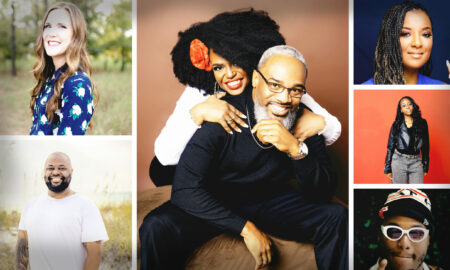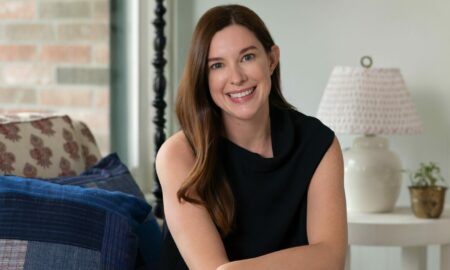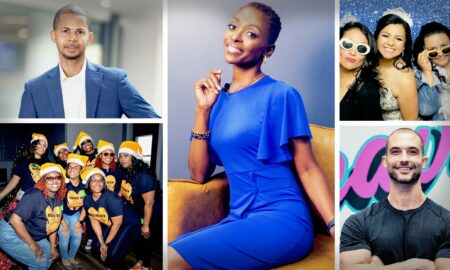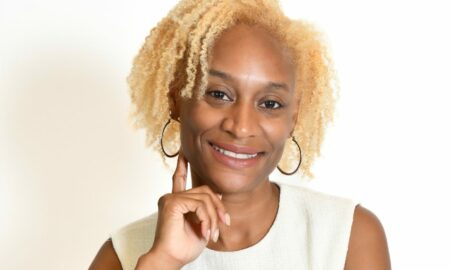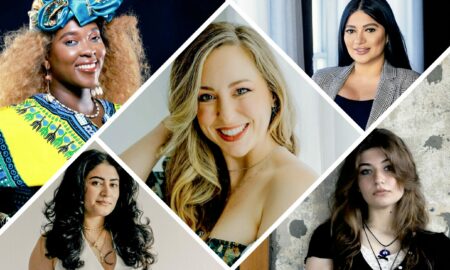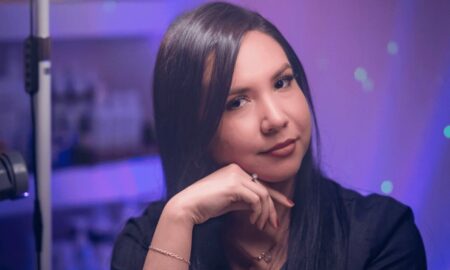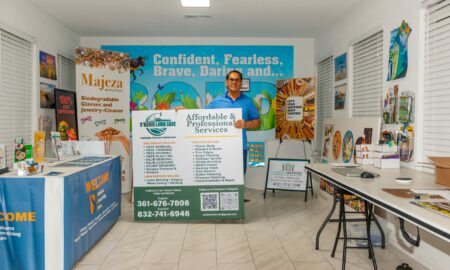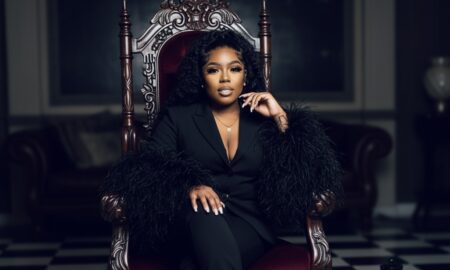

Today we’d like to introduce you to Edidiong Obot.
Edidiong, can you briefly walk us through your story – how you started and how you got to where you are today.
Well, I’m a proud first-generation (first-gen) Nigerian–American with strong cultural ties. Growing up, my parents instilled in me the importance of knowing where I come from and preserving our culture. From cultural dancing on various stages to serving my community, I’ve come to realize that your culture is an extension of who you are. I’ve always had a passion for knowing more about “my people.” When I say “my people,” I mean it in both a specific and broad sense. Specifically, I am from the “Annang tribe” second-largest ethnic group located in Akwa-Ibom State, Nigeria. Akwa-Ibom State became its own state 31 years ago after being formerly connected with Cross River State. Our root language is Efik and there are several dialects such as Annang, Oron, Ibibio, and Eket, just to name a few. After several never-ending questions, which by the way still continue ‘till this day, I’ve come to know for myself that my parents come from a tribe rich in culture. Specifically, my family has its own “city” in Akwa-Ibom State named “Ikot-Akata.” Akata in Annang means theater and our family is known for displaying our culture through the arts via dance, folklore, music, and more.
As an American born Nigerian, I fit into a category that’s unique in a sense where I’m learning several cultures simultaneously. What do I mean? It means for me. Specifically, I am learning my own culture, the American Culture, Black Culture, and “Immigrant culture” all at the same time. When my parents immigrated to the United States, it was solely for studying abroad on scholarship, with the intent of returning “home” to become the influencers, movers, and shakers back home. For some in my parent’s generation, they made it back home and did just that while others didn’t quite breakthrough as they expected due to economic reasons, change in-country leadership, etc. My parents are one of the many that stayed abroad and raised a family, made their mark here in the US, and were part of a growing community that had shared experiences.
I always admire the immigrant community not because my parents are immigrants, but because of the will, determination, and boldness to leave their home country, start from scratch, and by any means necessary find a way to make it in a foreign country where there are several obstacles they encounter daily. I look at my parents and see the successes, failures, dreams, and realities in their eyes, in their words, and in their mannerisms. It is that same fire that sparked me as a child and made me curious as to raise the questions of what their initial aspirations and desires were. Both of my parents are well educated as most immigrant Nigerians are and they instilled in me the importance of pursuing higher education. They are the ones that recognized my passion to solve problems and because of that, I pursued a Bachelor of Science in Chemistry as a Louis Stokes Alliances for Minority Participation Scholar and United Health Scholar/Pacific Care Scholar.
I assisted in research studies that ranged from nanoscience and cardiovascular medical research to environmental science and were funded and/or supported by the Air For Research Laboratory, Center for Disease Control and Prevention, Oak Ridge Institute for Science and Education Fellowship, and Houston Methodist Hospital Research Institute just to name a few. I further decided to pursue a Master of Science in Environmental Toxicology, where I did unprecedented research with metalized carbon nanotubes and its effect on osteoblast cells funded by the United Negro College Fund Special Programs NASA Science & Technology Institute.
From working as a Hazardous Waste Chemist to Emergency Response and Disaster Recovery Specialist, my career has taken several monumental shifts that not only expanded my own capabilities but has given me the room to evolve. I have been afforded the opportunity to work in the private, academic, and now public sector and it’s been a rewarding experience thus far. I’ve always been a person who likes to connect the dots from technical-scientific research methods to the broad scope or the “bigger picture.” My career has allowed me to transfer my scientific background into community advocacy and cultural spaces where I could also make an impact both at the micro and macro level. When I think about it, I actually can attribute this to my parents because they, too, have a science and health background yet are still very much involved in their community.
For the longest people have coined me as “The Connector” and I take honor in the nickname. I love that I can take concepts, ideas, systems, etc. and relate as well as integrate them into a vast network that unites individuals with various interests. Over the years, I have found ways to leverage my relationships and network by finding a common thread that connects us in one way or form. This is what led me to become not only a Science Professional and Public Servant, but to also be Cultural Influencer and Community Advocate. I realized I didn’t have to sacrifice one title for the other, but rather all of these titles are who I am and it’s how I connect with others. I have a responsibility in these respective positions to learn, connect, educate, and inform my network and community in ways that empower, impact, and change lives even in the minutest form.
Once I realized this, I decided to connect my scientific background with this passion for advocacy in my community and got involved with organizations such as The American Association of Blacks in Energy Annual Houston Energy Worksop, United Way of Greater Houston Community Building Committee and Community Investment Committee, The Houston Area Urban League Young Professionals, The Professional Association of Young Africans, African Fashion Week Houston, West African Film Festival, and the Bobsled and Skeleton Federation of Nigeria just to name a few. In addition, I wanted to take it a step further and do more with my voice to connect and promote the great working being done by young professionals in the diaspora. The opportunity presented itself during a unique time in my life where I was given a platform to be one of the voices in my community as a Television Personality on Afrocentrik TV, formerly known as Vineyard Television.
I managed to balance a full-time job while hosting/co-hosting and producing 2 TV shows. It’s Our Time Talk Show and Fresh Perspective Talk Show. It’s Our Time Talk Show specifically highlights young professionals in the African Diaspora. The show aims to educate and empower the community while promoting culture and making an impact through the voice of young professionals. Fresh Perspective is a talk show that curates conversations centered on providing different perspectives of the Diaspora community. The show’s intent is to bridge the gap in the Diaspora by understanding cultural differences and similarities within the Diaspora community. Fresh Perspective strives to be a voice that unites the Diaspora through policy, history, education, resources, and more.
I never envisioned that this is where I would be in my life right now, but I am thankful for the journey so far and I am excited about what is ahead of me. I’ve always been a person that believes that you can have more than one career simultaneously. Don’t limit yourself or put yourself in a box, because God fashioned you in such a way that He placed various gifts and talents inside of you waiting to be birthed by you!
Great, so let’s dig a little deeper into the story – has it been an easy path overall and if not, what were the challenges you’ve had to overcome?
No, it has not always been a smooth road as a first-gen Nigerian-American, because you realize that a lot of the cultures you’ve grown to learn are only bits and pieces of what you experience and what’s been handed down to you from your parents. In America, we are not only seen through color but through culture, ethnic groups, tribes, class, etc. all within the same classification for being “Black” or “African-American.” At home, you learn your culture from your parents and at school, you learn the “American culture” and its subset “Black Culture.” As a first-gen, you don’t quite fit in as a Nigerian or as African-American per se. Not only are there cultural differences, but you find yourself sometimes teaching your own parents a few things you learned while in school or through interactions with friends and vice versa. What I do know is that as first-gens, we are currently writing our own history and making historic moves that America has only tasted and there’s more to come.
From the struggles of making it on their own to seeing their children become notable professionals, making impact and change is one of the joys I see on my parent’s faces. Knowing that they’re able to see the harvest of a seed they planted over 30+ years ago when they first step foot into this country of the “Land of the Free and Home of the Brave.” is both overwhelming and fulfilling. Many people struggle with identity, especially in America, because of simplistic ways to classify people. However, it is definitely a battle that can be overcome. You make your own decision on how you want to be classified and take control of your own story and narrative, which is what I have done. I decided that I didn’t have to just have a one-track career, but I can do what I love and what I am passionate about at the same time as many others have.
Of course, many didn’t understand the moves I made or the journey I took, but I realized that I have to live this life for me performing the God-intended assignment for which doesn’t require approval from people or in simple terms “walk in my divine purpose.” There were times where I questioned my journey, especially when you enter spaces where you might feel like you don’t belong or you don’t see many if anyone like you. Sometimes I am the only African-American female in these spaces that are often dominated by my male counterparts. However, I took advantage of these circumstances and decided to turn them into learning experiences. This helped shape my leadership style, build relationships with people, and added to my self-confidence, knowing that I am qualified to not only be in the room but be at the table leading discussions and making decisions.
Other times I questioned if I could balance my career with my community advocacy platform because both demanded a lot of time and effort to ensure quality outcomes, whether it be an advocacy panel discussion or attending various environmental trainings. I learned that in balancing, you have to prioritize and be intentional with your time. This where I began to have accountability partners that I shared my schedule with, as well as expressing my successes and struggles with. They empowered me when I doubted myself and helped me be accountable to the goals I wanted to achieve by pushing, reminding, and even criticizing me in loving ways that put me back on track. My experiences, challenges, and successes have led me to the person I am today, where I am always striving to be a voice that is “connecting the dots in our community.”
Please tell us about E.CHRYS.
E. CHRYS, LLC is known for connecting the dots of our community” by focusing on specializing in a variety of services ranging from strategic planning and logistics to brand development and management. E. CHRYS, LLC. Strives to provide creativity, quality, and impact at each level of outcome measurements, from assisting non-profit organizations in organizational structure and community engagement to event coordination and influence E. CHRYS, LLC. Tailors its products and services to the unique needs of each client.
Do you look back particularly fondly on any memories from childhood?
My favorite childhood memory would be cultural dancing with my cousins at various events around Houston and across the country. Displaying our culture at the Natural Museum of Science is one of my favorites because people got a chance to see young children dancing and showcasing their Akwa-Ibom heritage.
Contact Info:
- Website: https://campsite.bio/echrys
- Phone: 346-291-3923
- Email: info@echrys.com
- Instagram: @e_chrys
- Facebook: https://www.facebook.com/e.chrysobot/
- Twitter: https://twitter.com/e_chrys







 Image Credit:
Image Credit:
1. It’s Our Time Talk Show | Left to Right: LaNell “Women Produce” Grant, Eidiong “E.CHRYS” Obot
2. Fresh Perspective Talk Show | Left to Right: AJ “Hyrdate Hill Water” McQueen”, Edidiong “E.CHRYS” Obot, Ray Shackelford
3. Akwa-Ibom Convention Houston | Left to Right: Daisy Umotong, Edidiong “E.CHRYS” Obot, Mfon Ekanem
4. Edidiong “E.CHRYS” Obot
5. The African Film Festival Awards | Left to Right: Edidiong “E.CHRYS” Obot, Richard Mofe-Damijo, Jane Udoewa
6. African Fashion Week Houston| Edidiong “E.CHRYS” Obot
7. West African Film Festival Film Screening hosted by E.CHRYS | Left to Right: Rebecca Dennis, Benjamin “Ogazy Eccentrics” Ohene-Mensah, Bernard “The Bridge Imports” Johnson, Edidiong “E.CHRYS” Obot, Edward “Ghanaian Urban Movement” Carr, Agya K. “Ghanaian Urban Movement” Anane-Sekyere
8. African Fashion Week Houston Kitoko Grand Fashion Show | Left to Right: Lulu “Akello Chic” Mapande, Sarunas Jackson, Edidiong “E.CHRYS” Obot
Suggest a story: VoyageHouston is built on recommendations from the community; it’s how we uncover hidden gems, so if you or someone you know deserves recognition please let us know here.

